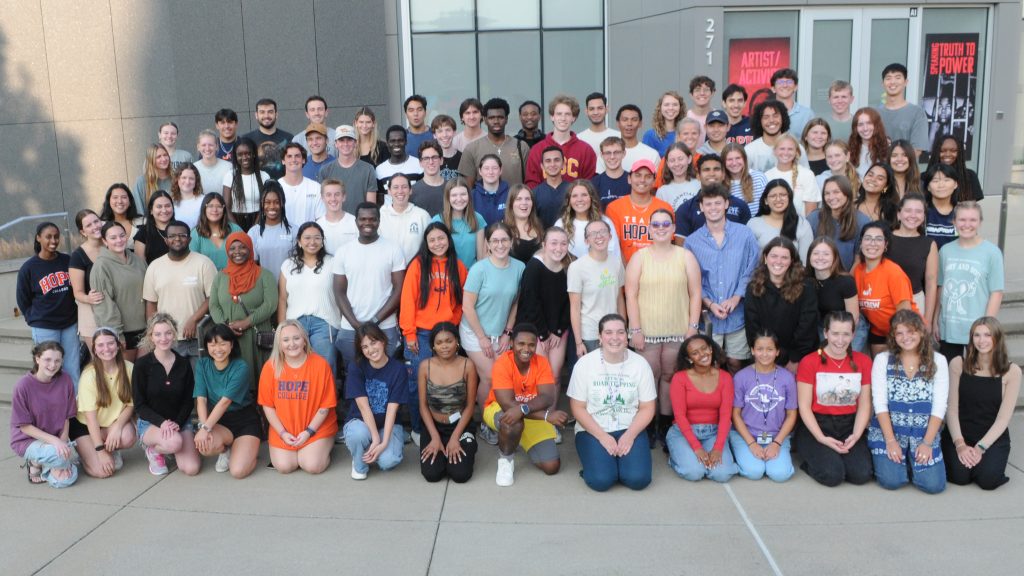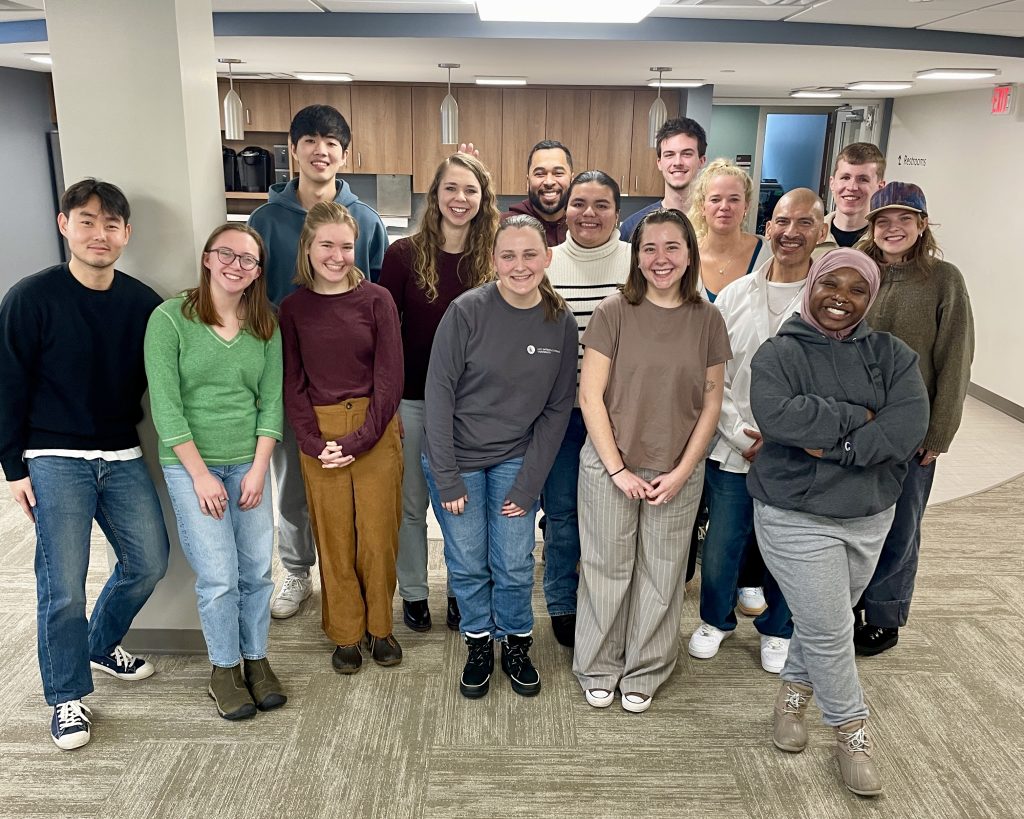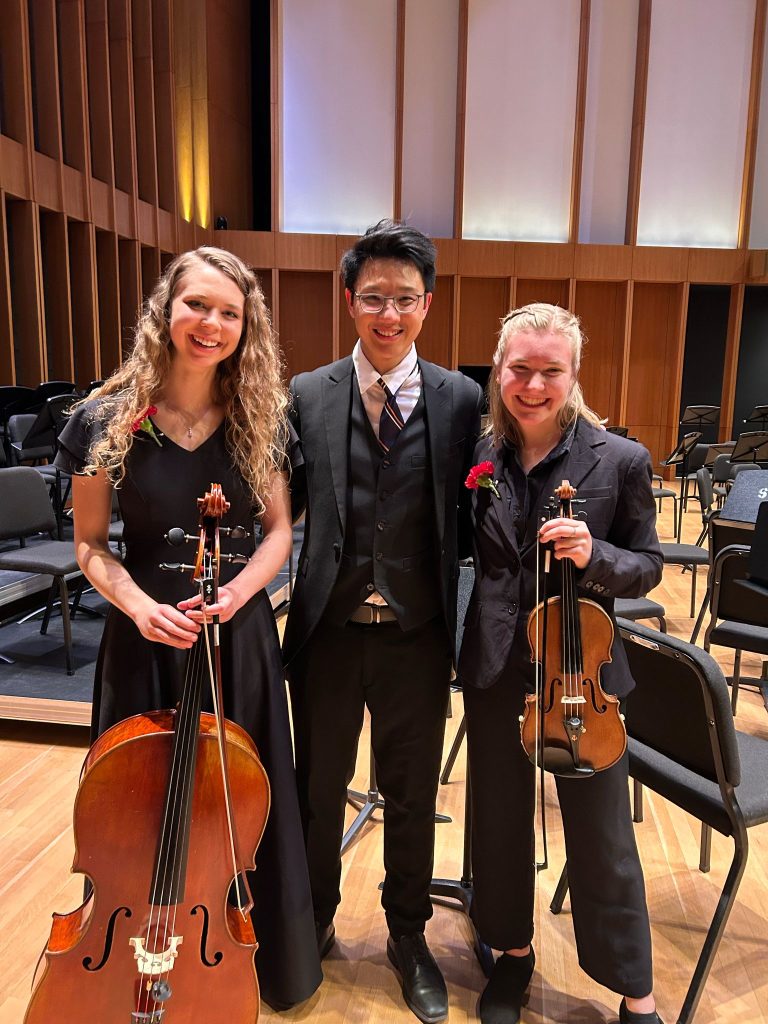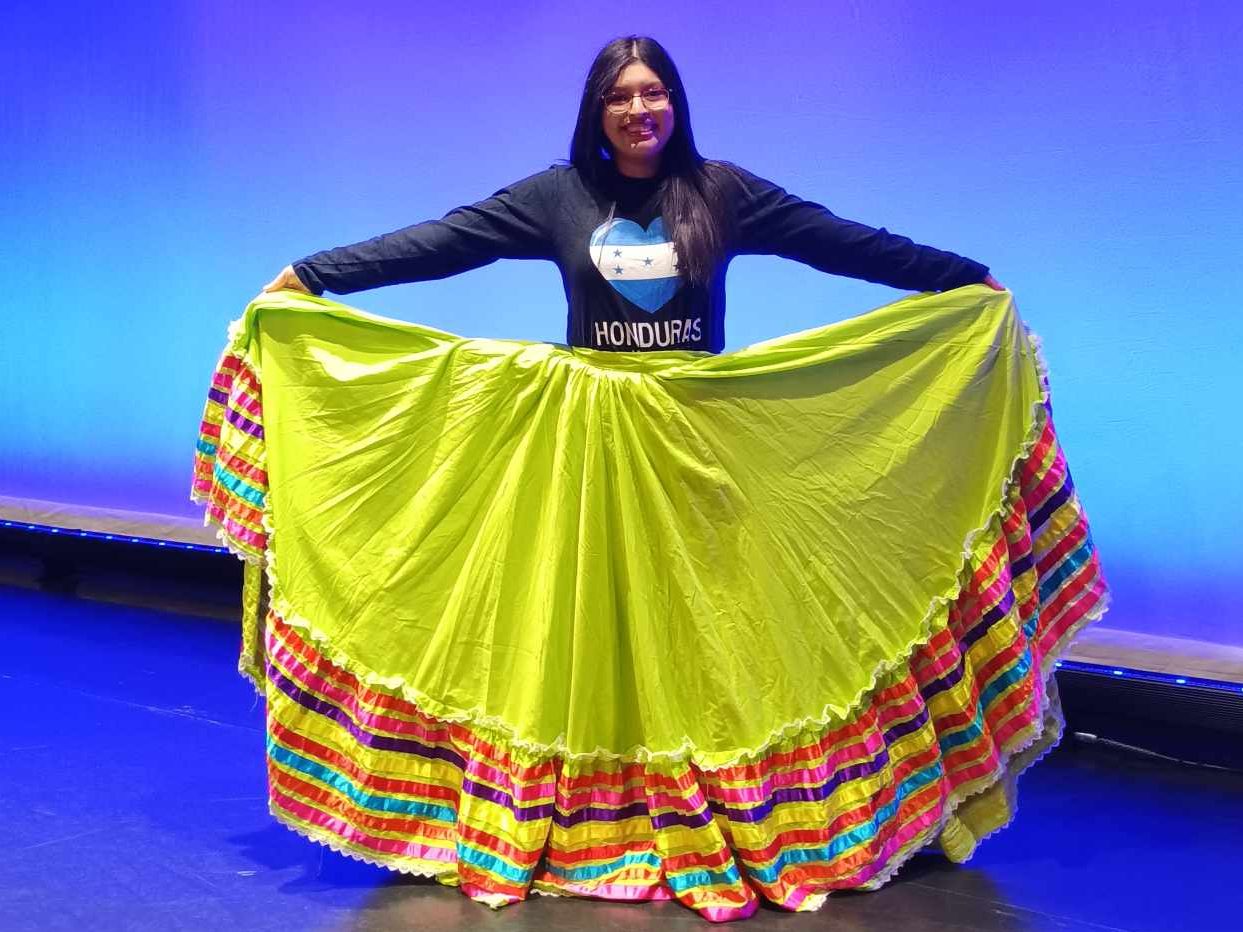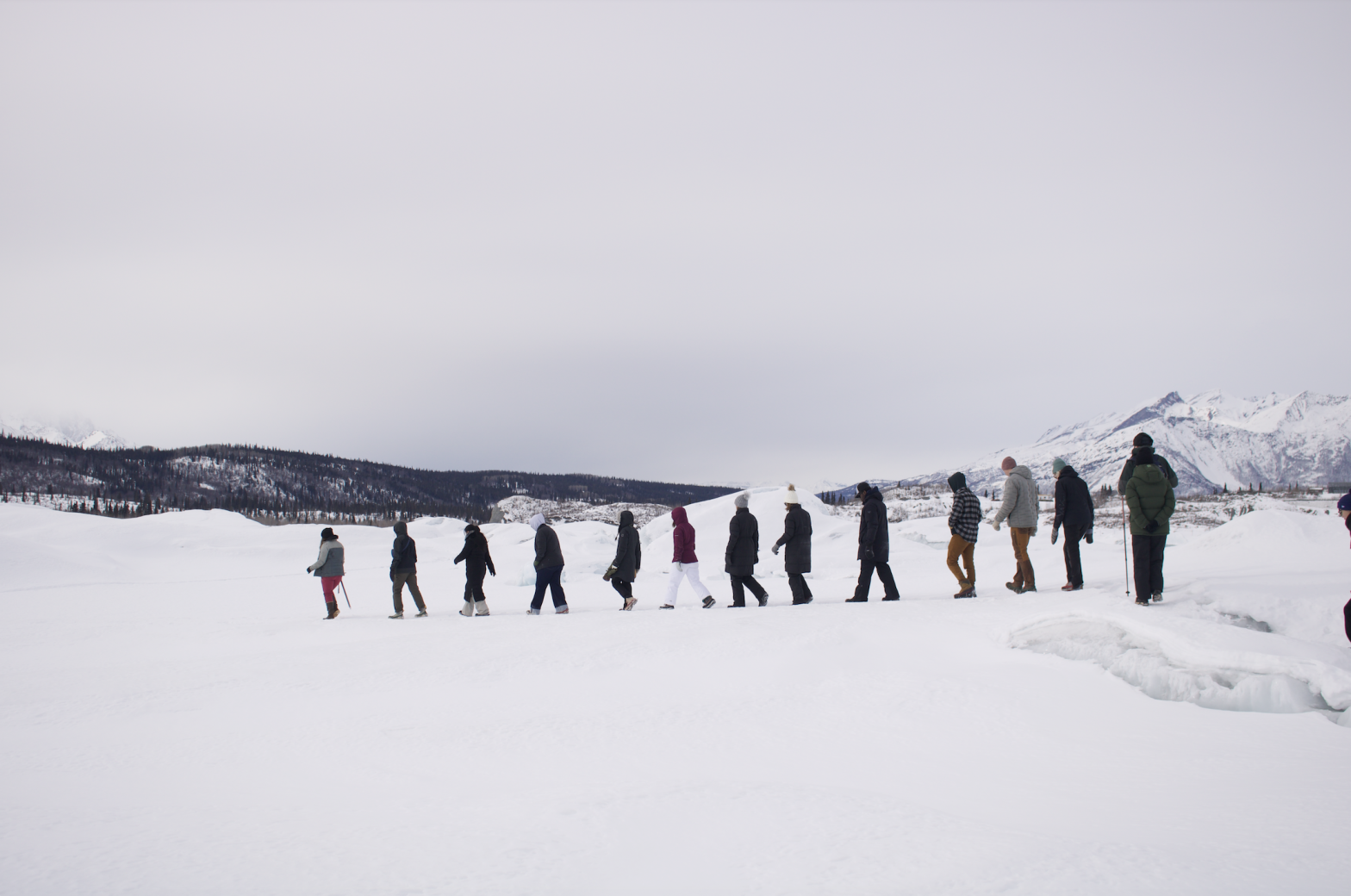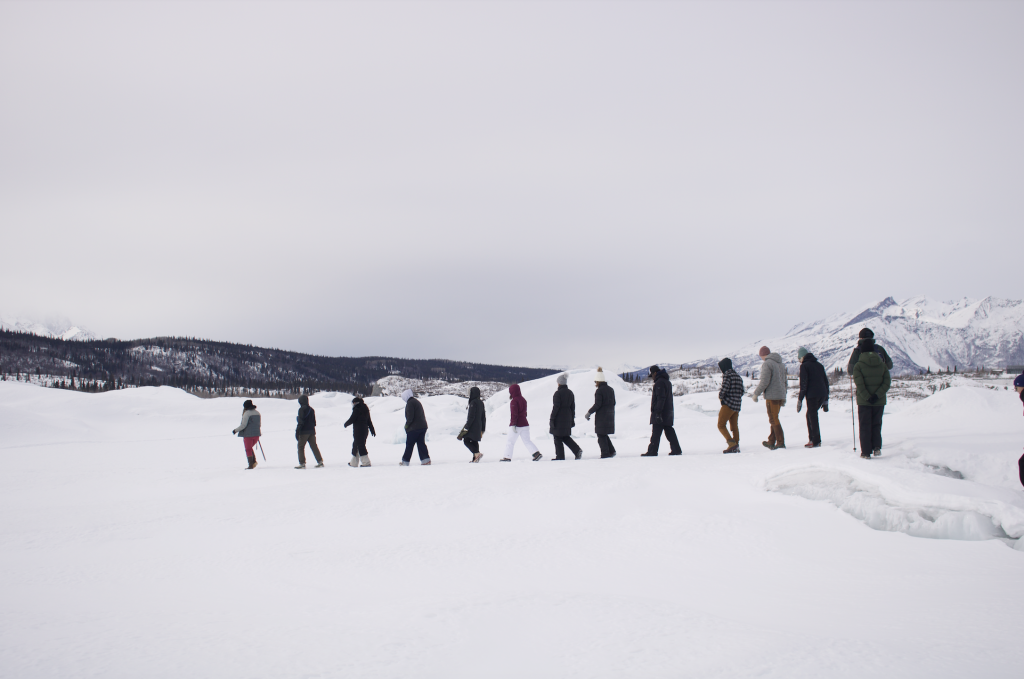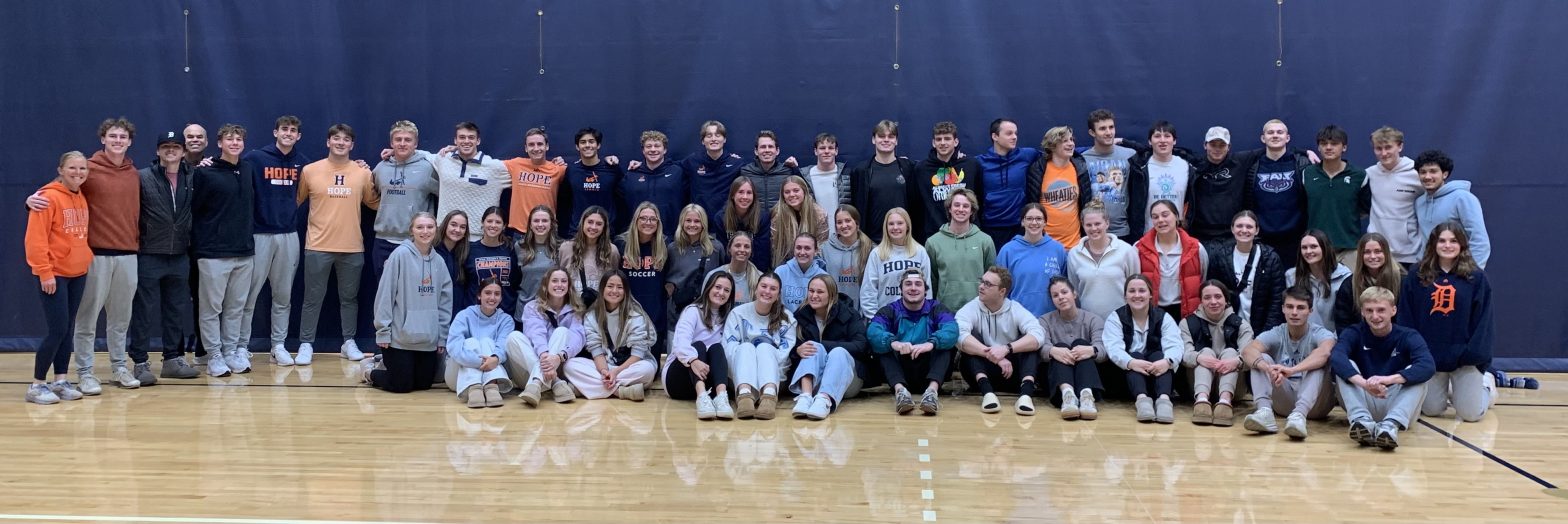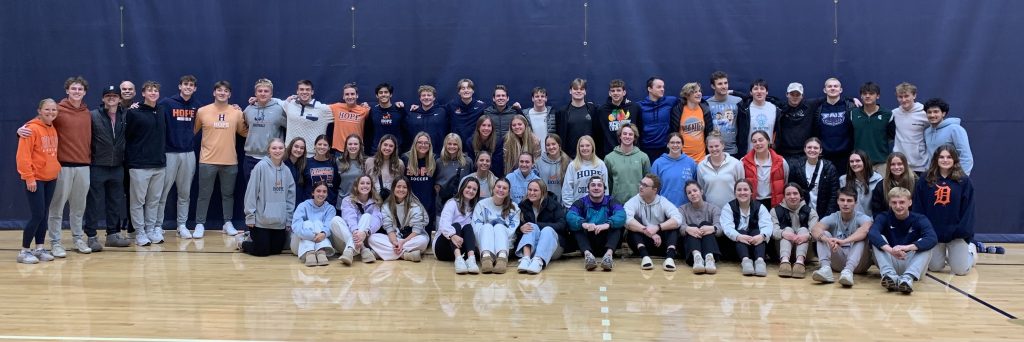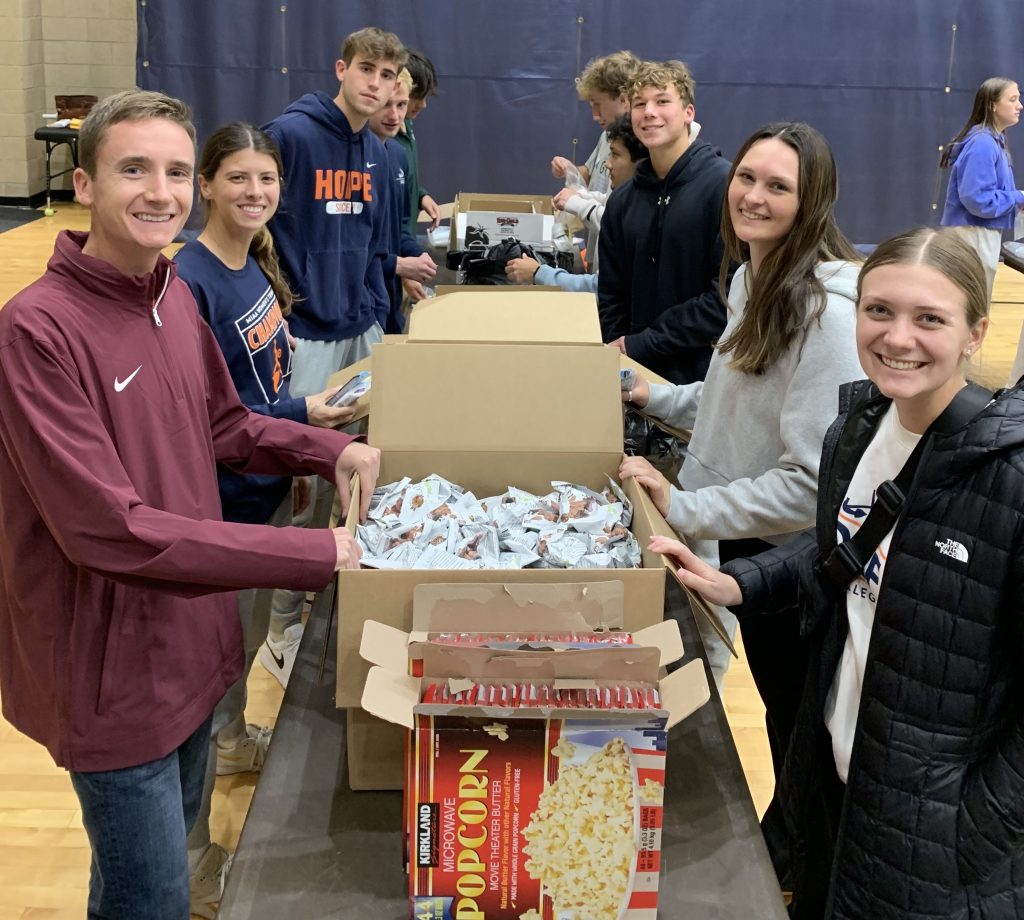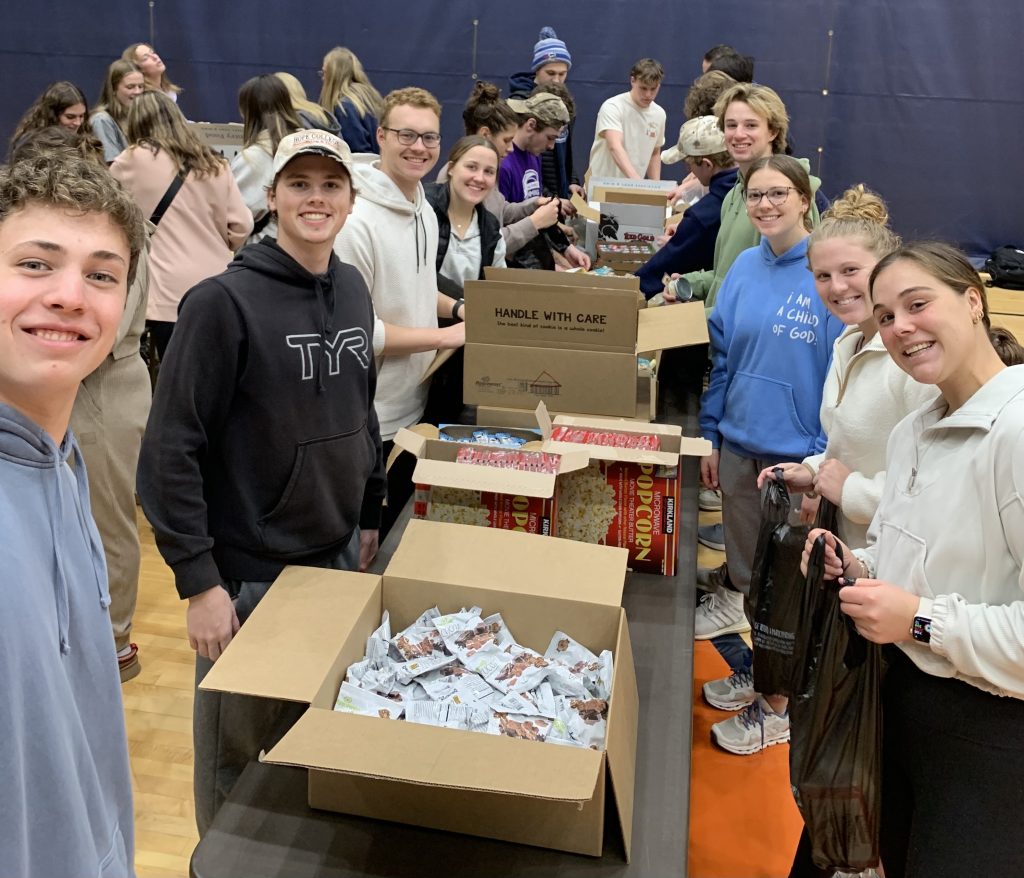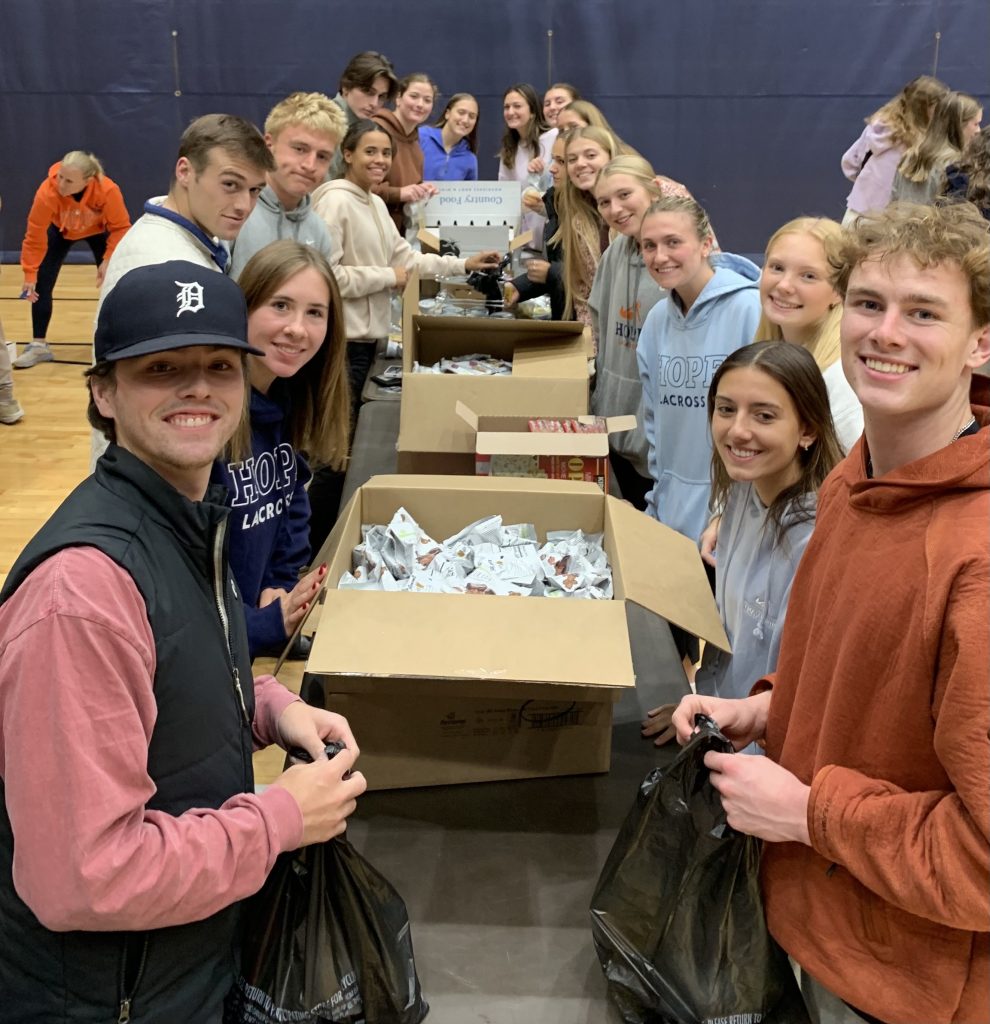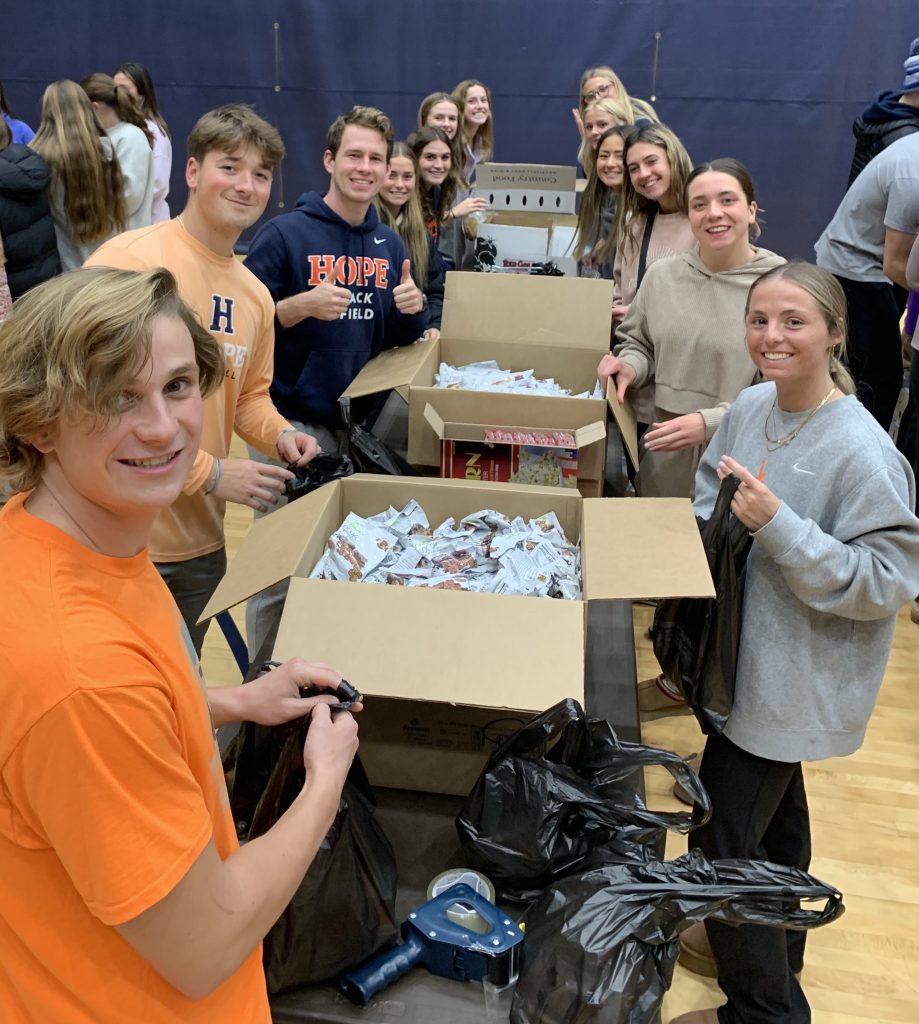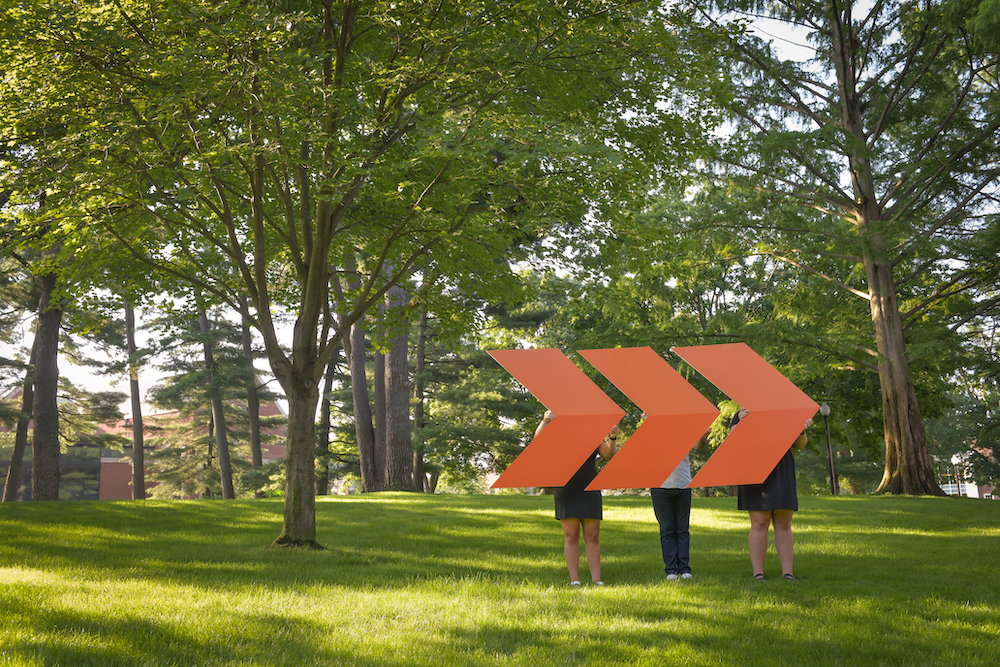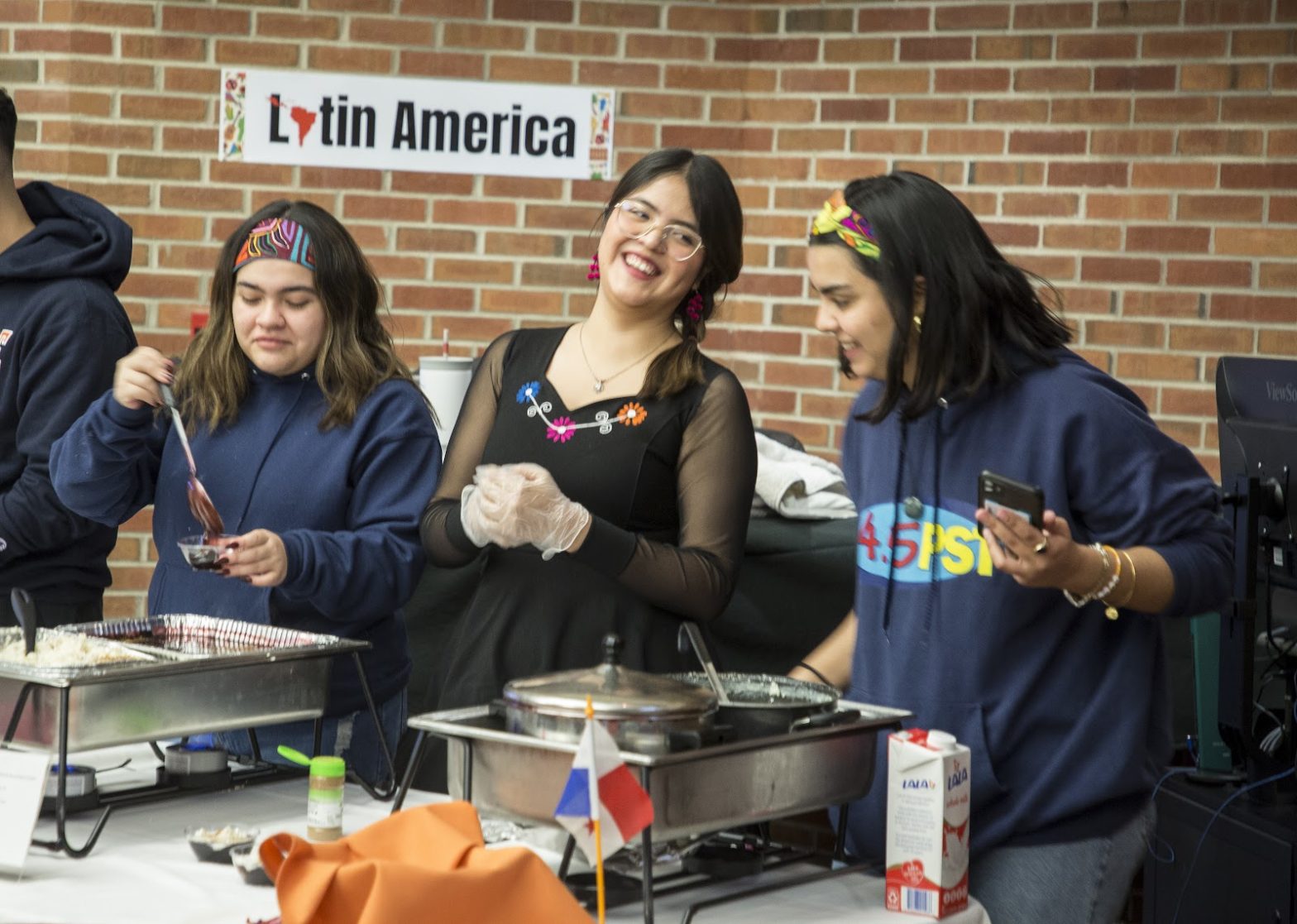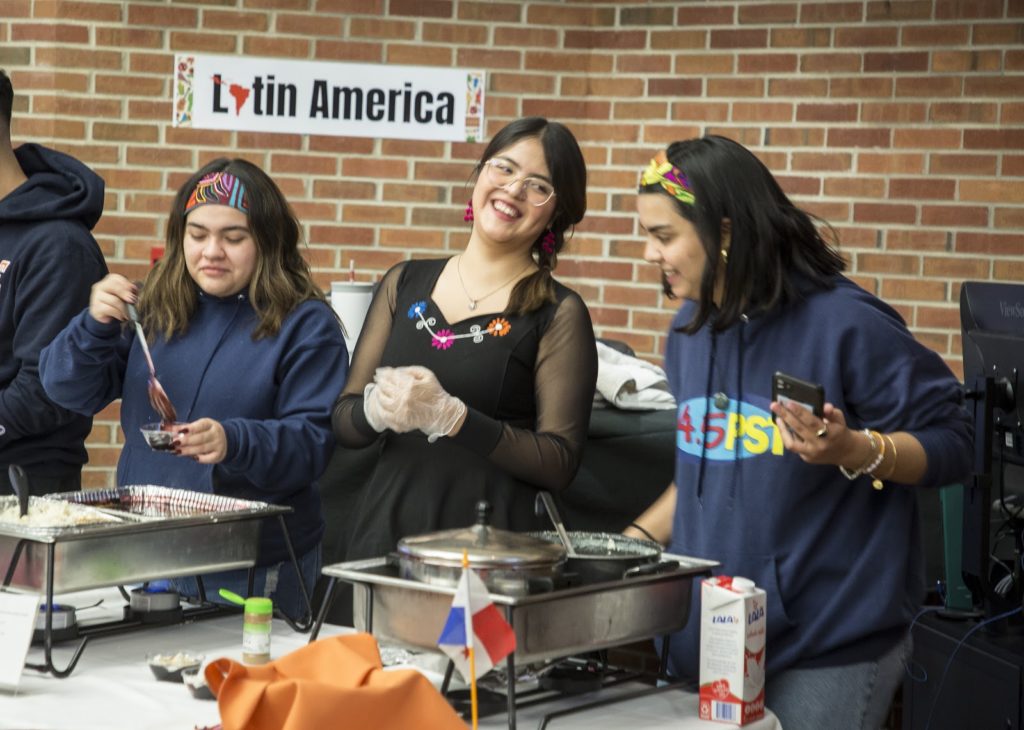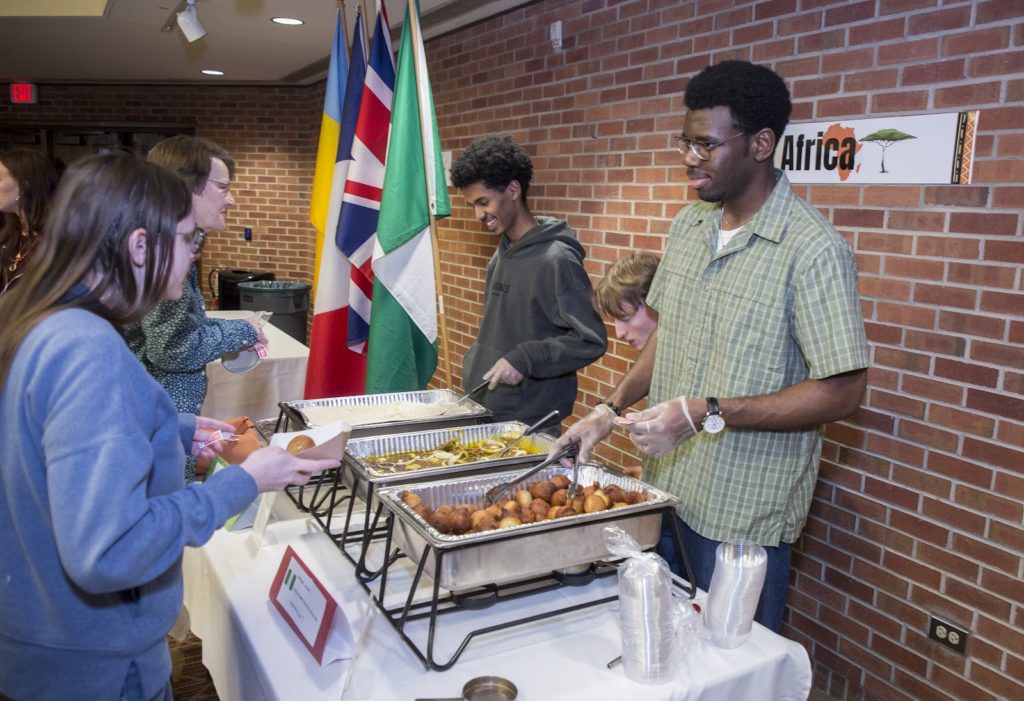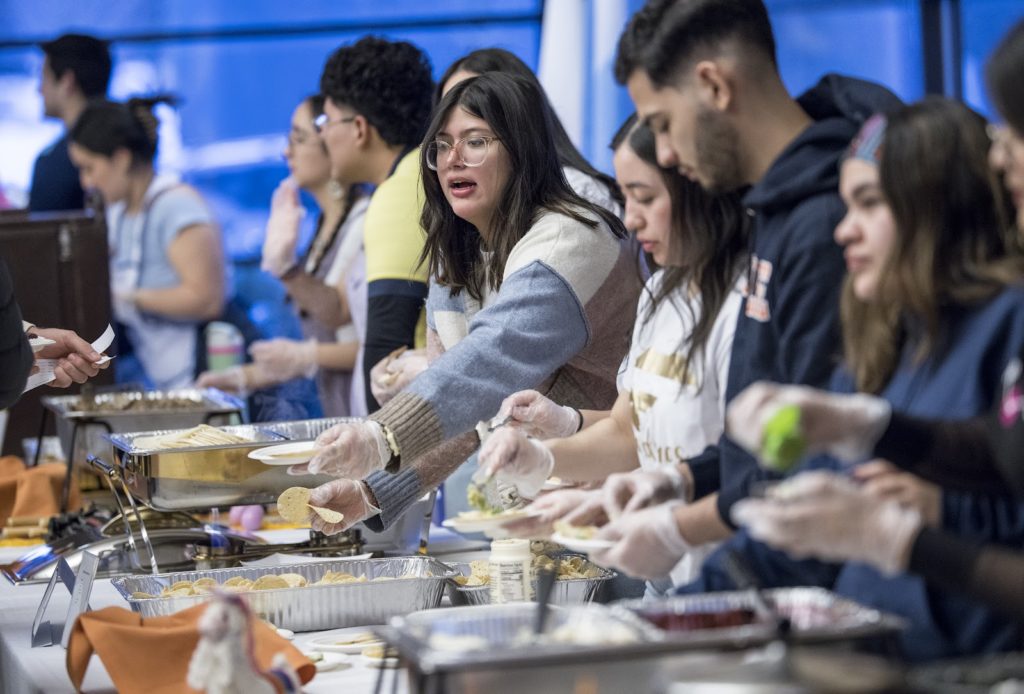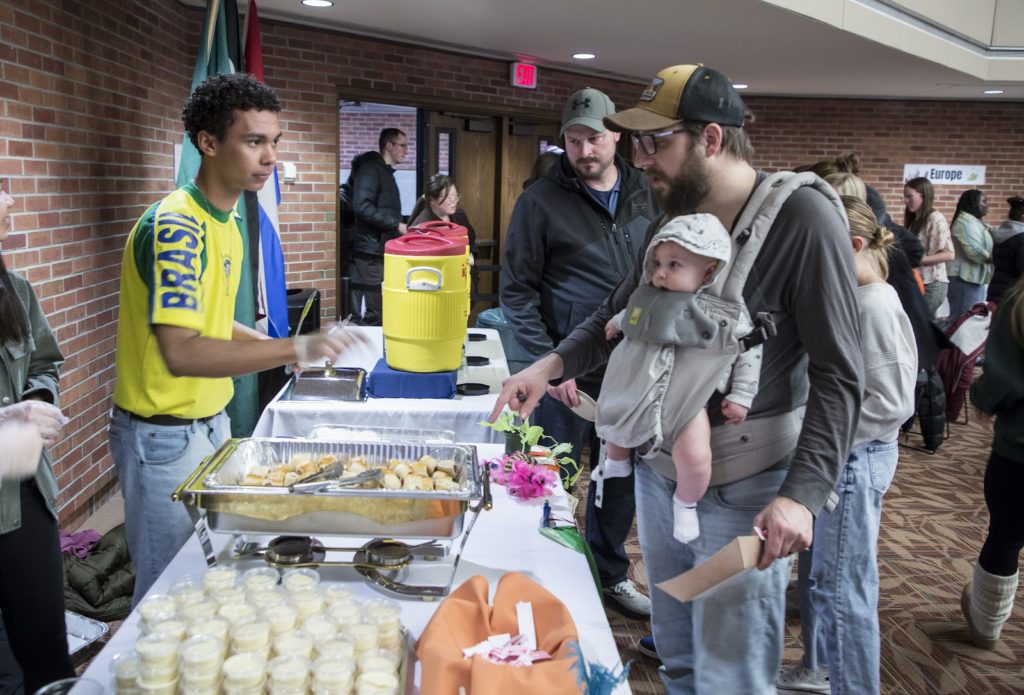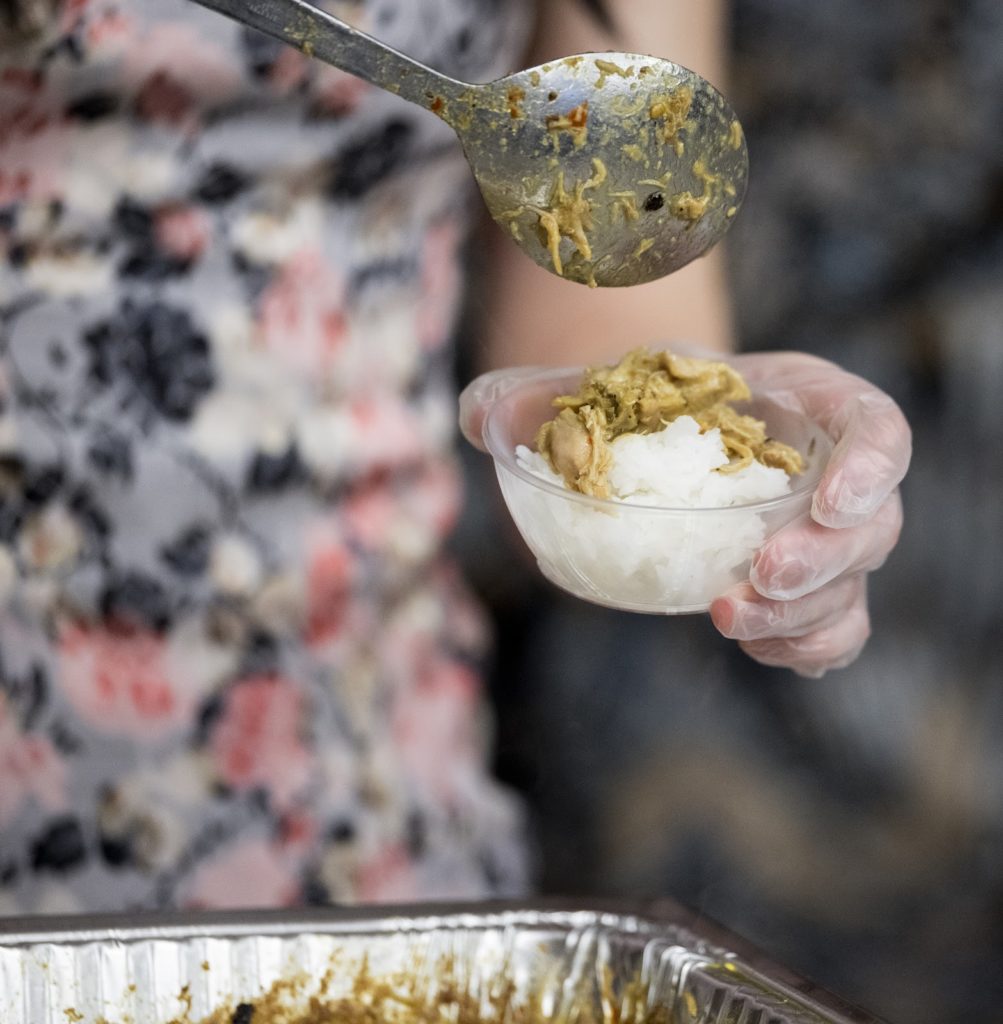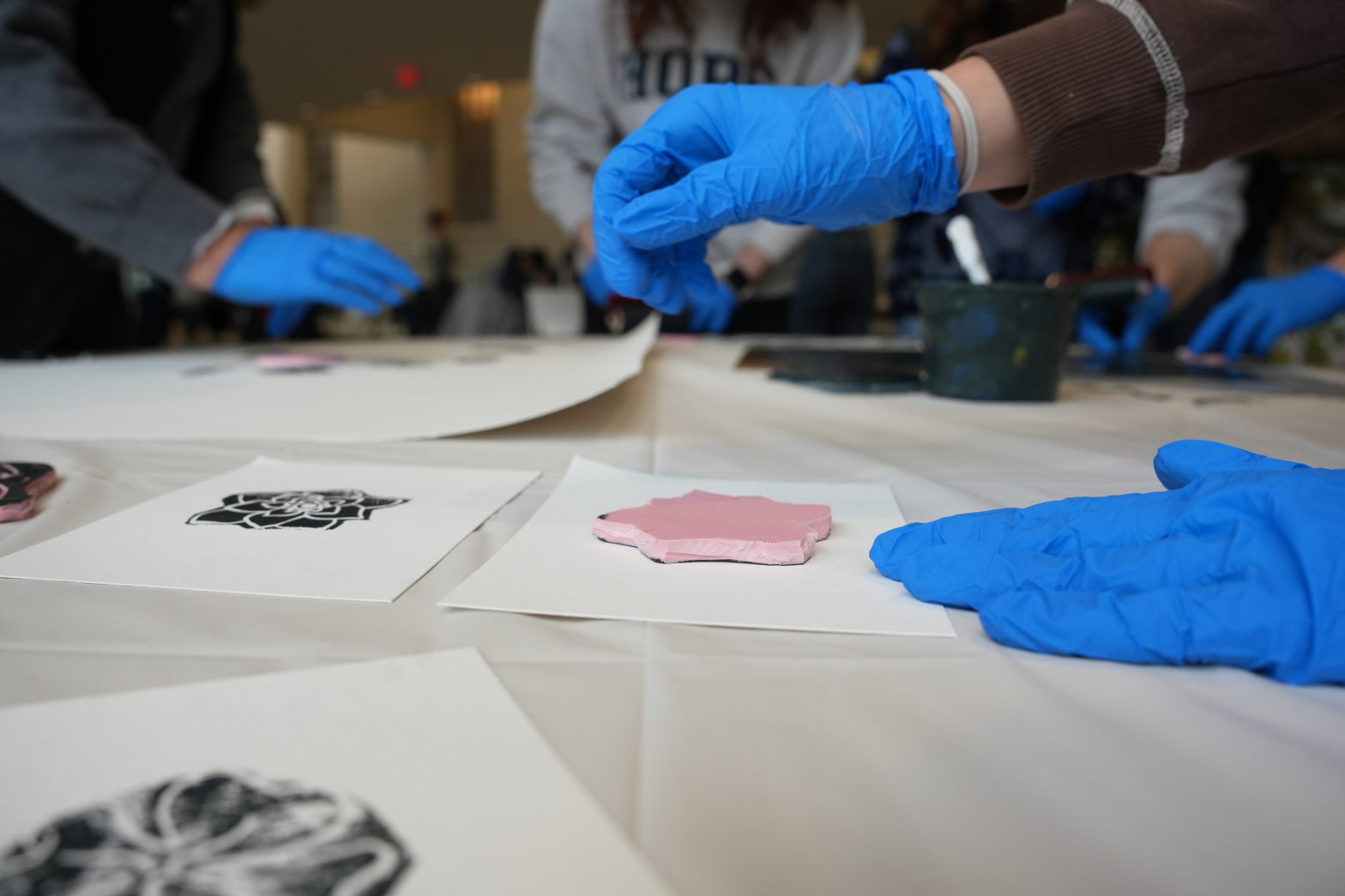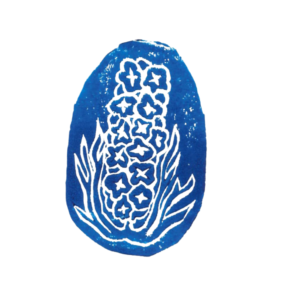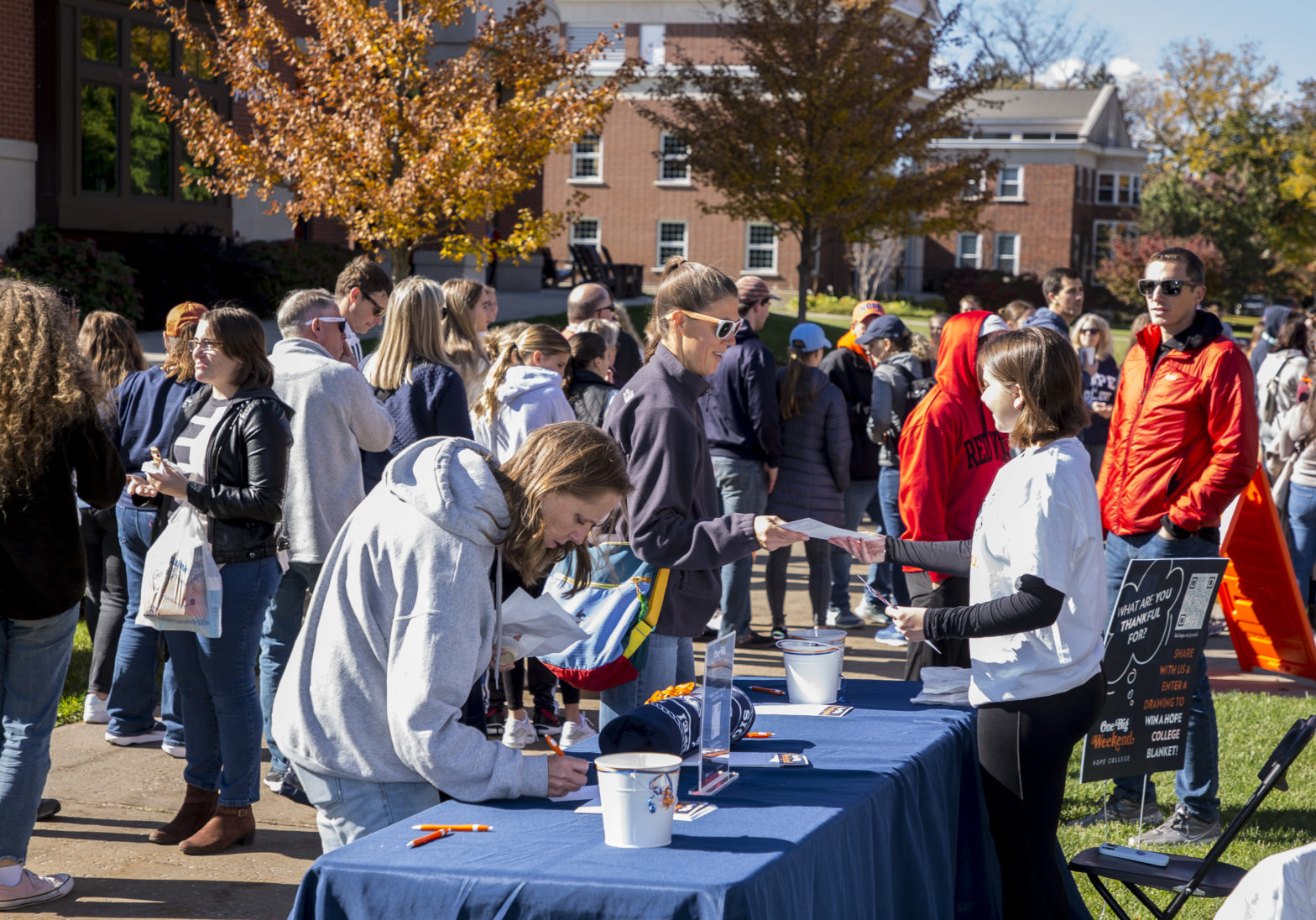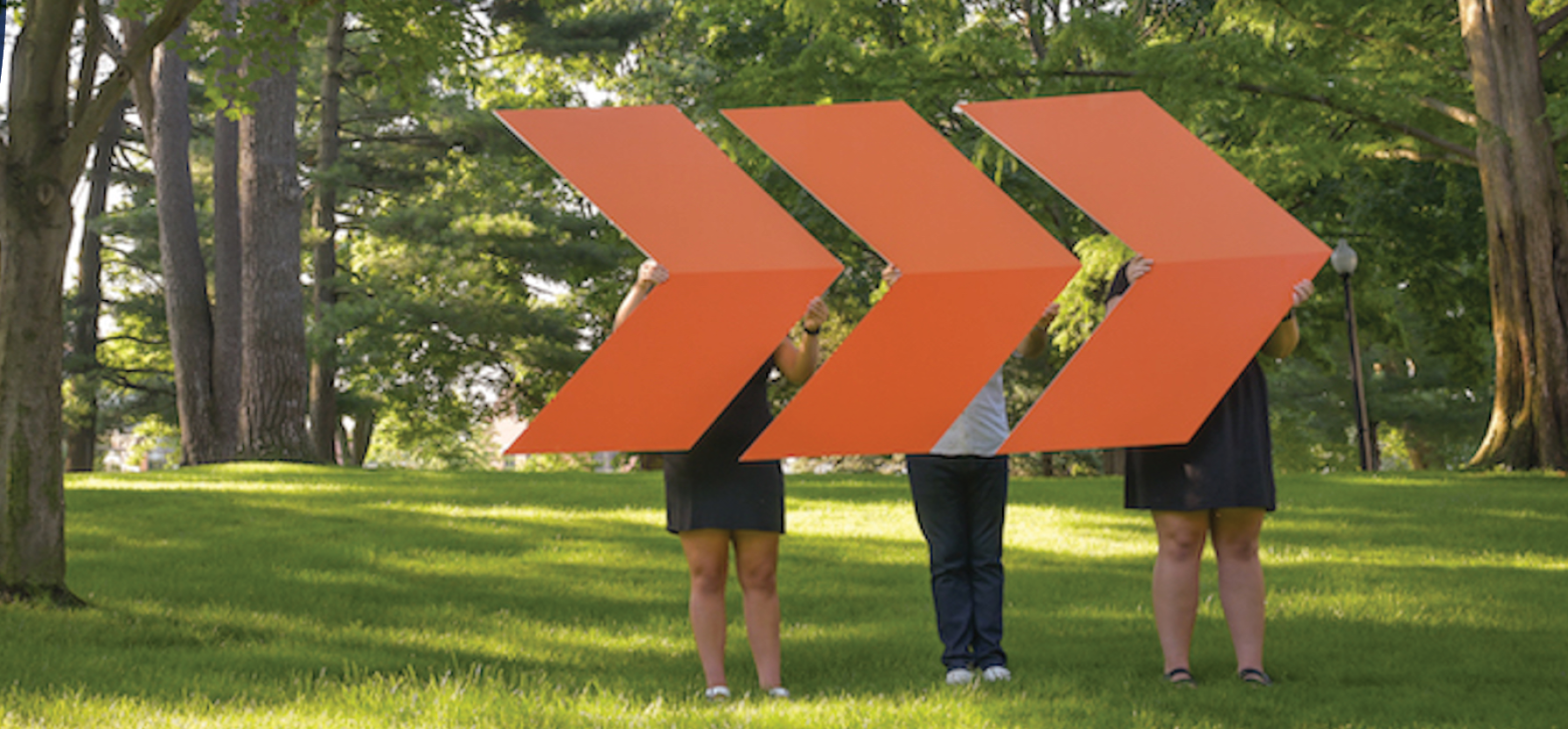By Madison Steinman, Hope Forward Class of 2028
Madi and her cohort mate, Leah, developed the vision that is shared below for the 2025 Positive Impact Banquet.
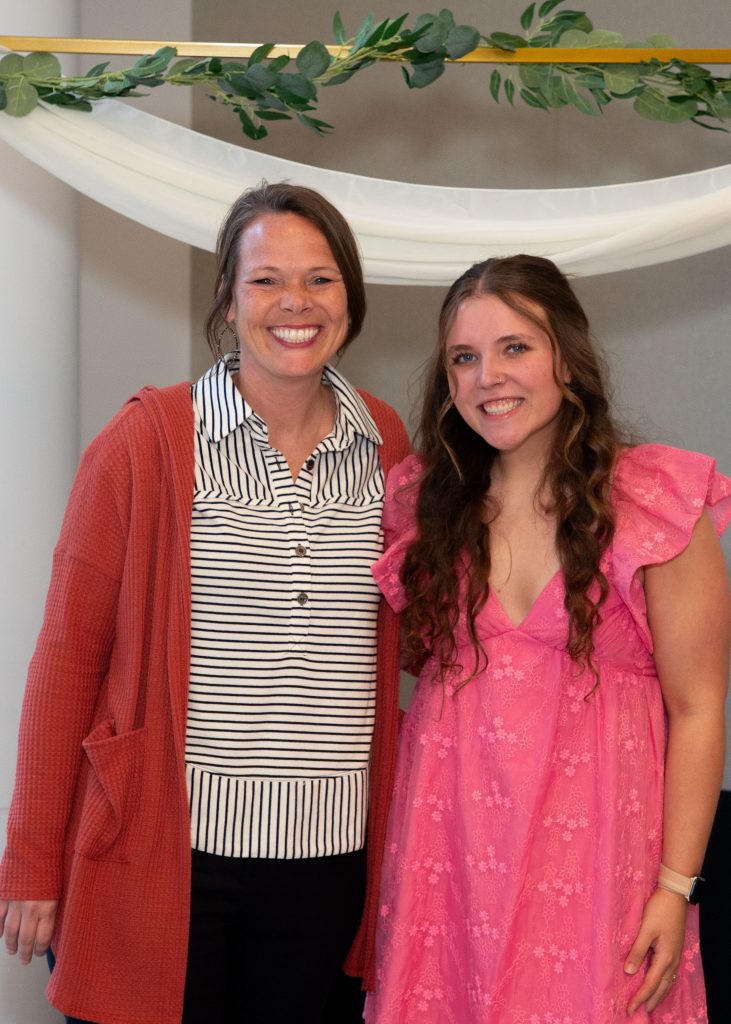
Freshman year of college is truly one of the most difficult, exciting, daunting, confusing, exploratory and developmental times in one’s life — a time of multiple “firsts,” questions and emotions. Nearing the end of every spring semester, the Hope Forward freshman cohort thoroughly plans and hosts a Positive Impact Banquet. This banquet is designed for students to shower those who have impacted them with celebration, gratitude and love. Whether it’s a professor, dining services member, friend or mentor, each cohort member extends an invitation to an individual they feel positively impacted them during their first year at Hope College. From the vision and theme of the night, to the program and decorations, the banquet is customized by the cohort to honor their invited guests and others such as the cohort’s selection committee, the Hope Forward leadership team, prominent donors and more.
Inspired by the message of The Parable of the Sower, this year’s banquet was an opportunity to recognize the power of intentionality, connection and growth when considering: What does it mean to have a positive impact? More importantly, it prompts us to consider how individuals can prepare their hearts and minds to establish flourishing roots of generosity, gratitude and hope for a fruitful future of impact. This parable reminds us that the seeds of impact that one sows have the potential to grow into something extraordinary, depending on where one plants them and how one nurtures them. Similarly, as the sower casts seeds onto different types of soil, one is able to determine how one will receive, or not receive, the impact of others. One’s soil, or response, determines one’s ability to lead a fruitful life of impact.

Reflecting on the story within the book of Mark, the concept of positive impact can be applied to Jesus’ insightful and wise parable:
- The Seed on the Road: This seed symbolizes the missed opportunities when one fails to acknowledge the positive influence around them. During the busy moments of life, it can be easy to focus internally. Individuals become distracted and blinded from seeing the positive impact of others whom they encounter daily. It’s a reminder to be present, aware and open to intentionally recognizing the impact individuals have on one another.
- The Seed Choked by Thorns: In a world often driven by fear, judgment and conformity, it’s easy to let the fear of being vulnerable or different hold one back from truly embracing and acting on the positive influence one receives. This seed represents how societal pressures can limit one’s growth if one allows them to suffocate the potential of positive change.
- The Seed in Good Soil: The final seed symbolizes how individuals can live lives of impact when they prepare their soil with humility, openness, gratitude and love in order to receive the kindness of others. Just as good soil allows a seed to grow and bear fruit, an open mind and heart allow us to take in lessons, grow from them, and pay it forward. Not only does one grow individually in one’s character by establishing resilient roots, but one’s growth results in a fruitful tree that sows new saplings of impact in the hearts of others. This is the place where one, as an individual and as a collective community, cultivates hope and impact.
The Positive Impact Banquet not only celebrated the seeds planted within the hearts of each student, but it honored the students’ abilities to recognize, reflect, show gratitude and act on the seed itself. It showcases the beauty to come from sown seeds — a fruitful, impactful harvest of hope.



